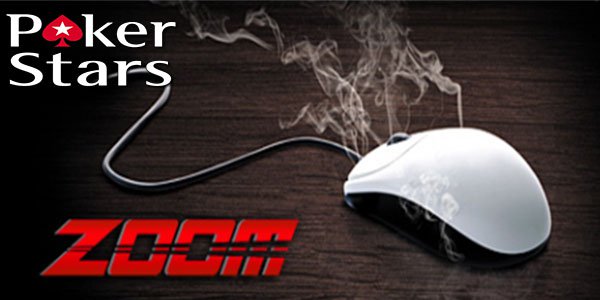Has the Battle for Zoom Poker Patent Been Won by PokerStars in the USA?
Posted: May 13, 2014
Updated: October 4, 2017

US Patent and Trademark Office approves PokerStars patent for fast-folding poker game dubbed Zoom Poker.
Contrary to most experts’ predictions, PokerStars has received patent application approval for their Zoom Poker game. The fast-fold type poker type was developed by the brand’s owner Rational Group and quickly grew in popularity with poker enthusiasts around the world.
The US Patent and Trademark Office (USPTO) has approved the patent application, which is expected to be issued later on this month. Gaming and intellectual property attorney Bill Gantz of Dentons legal firm, representing the online poker site, described the approval as a “surprising turn of events, after multiple decisive rejections.”
Patent application history
The PokerStars patent application has been made particularly peculiar, since the poker site can’t operate under American gambling laws just yet.
The company has already teamed up with land-based operators in states where online gambling is legal and is currently looking to jump on the internet gambling bandwagon in the states.
PokerStars fast-fold poker patent approved
• Long-lasting battle for patent has finally been won by PokerStars
• The patent will have huge effect on online poker under American gambling laws
• European and international market will be mostly unaffected
Their patent is dubbed “Computer Gaming Device and Method for Computer Gaming”. It actually has a long-standing history, dating back all the way to December 2008. Back then it was submitted before USPTO by Full Tilt Poker, the pioneers of fast-fold poker: Rush Poker. At that time they were one of the biggest online poker sites in the United States until the events of Black Friday.
Full Tilt Poker was later purchased by PokerStars in 2012, along with Rush Poker product, as part of a settlement deal with the United States Department of Justice. PokerStars got all the assets of their rival, but vowed to take care of all the debts before players and authorities alike.
The initial patent application by Full Tilt Poker was also rejected at the time of submission. Interestingly enough it was reviewed by the same patent examiner as later PokerStars submissions. The reasons for rejection were explained by the fact the R. Martin Oliveras has already applied for a patent with similar game mechanics. As a reminder: fast-fold poker is a game where player is reassigned to a different table automatically after folding their hand.
PokerStars didn’t give up and continued to pursue their patent application, managing to meet with a new patent examiner last year. Based on that meeting, the poker operator withdrew 51 initial claims, but submitted 53 new ones.
Those amended applications were also rejected by the USPTO. During a second meeting with the examiner in March 2014, another amendment has been made to the application suggested by the US Patent and Trademark Office themselves.
The success of the application
PokerStars lawyer has been quoted in American gambling news saying: “The Examiner found and cited both prior art and common sense in the January 31, 2014 rejection for every step of the claimed invention with the exception of configuring the server to prevent a player from playing the folded hand.”
Mr. Gantz continued: “It is truly surprising here that the PokerStars application survived multiple wholesale rejections, and that this patent appears to have issued because the prior art available to the Examiner simply did not teach that a game server should be configured to prevent a player who folds from playing the hand they just folded. Everyone knows a fold means you are out of the hand. It is also surprising that the patent issued over prior art cited by the Examiner teaching taking a fold ‘out of turn.'”
Patent’s meaning
Once received by PokerStars, the patent will only affect prospect real-money online poker game in the United States. It will have virtually no effect on the European market or elsewhere.
Other rival fast-fold poker products most likely to be affected by PokerStars patent, should it be legally launched on the American market, include quite a list of games. Jump Poker from Zynga, Zone poker by Bovada, PartyPoker’s product operated in cooperation with New Jersey’s Borgata, 888 poker game in partnership with WSOP in both Nevada and New Jersey, as well as Strobe Poker from Amaya Gaming.
Bill Gantz continued to speak about the effects of the PokerStars fast-fold poker patent on the whole online poker industry in the United States. He said: “The amendments which allowed this patent to issue should seem obvious to the entire poker industry, and there should be ample grounds for vigorously challenging this patent.”
















